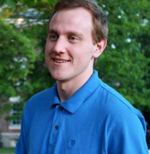By: Jonathon Spalding
For two millennia the leading intellects of Western Europe expressed their most sophisticated thoughts in a language that is now largely considered extinct.
Although there are no remaining native Latin speakers, the language has transcended across time and cultures to lend itself to religious traditions and academic study, as well as uses in the fields of law, medicine and science. It is for this reason that the Classics program at UK approaches Latin as a living language that can be read, written, spoken and deeply cherished.
In the last decade, the M.A. program in Classics has undergone tremendous growth, attracting students from some of the world’s most renowned colleges and universities.
“A small graduate program like Classics has made the University of Kentucky known in intellectual circles throughout the world,” said Milena Minkova, Director of Graduate Studies in Classics.
>>Listen to Milena Mikova's podcast on UK's Insititute for Latin Studies
Recently, the Classics program has been awarded another three-year allocation of the Graduate School Academic Year Fellowship for their continued commitment to excellence and dedication to their students. Each year the program will nominate one student to receive this scholarship.
“The fellowship is valuable to Classics in our quest to recruit a large number of young scholars from the top universities of the U.S. and from the whole world to come study at UK,” said Minkova.
The current recipient, William Little, is one of those scholars. Having already obtained a B.A. in Classics from Harvard and a M.A. in Medieval Studies from Fordham, Little chose to come to UK for another degree because of the programs uniqueness.
“It was this source of assistance that made graduate study in the Classics at UK a viable option for me,” said Little, “this program stood out immediately and lastingly given my academic interests and goals.”
The Classics program is unique in that texts from all periods when Latin was a major and active literary language in western culture are studied and researched. From classical antiquity to the Middle Ages and the Renaissance, the program is unusually broad in its scope, which allows students the flexibility to explore a variety of topics.
 With his own academic interests centering on the literary history of the Middle Ages, this flexibility was one of the driving forces behind Little’s decision to come to UK. The inherent duality of his previous academic pursuits, Medieval Studies and Classics, is complementary in its nature, with a large body of medieval literature steeped in Latin.
With his own academic interests centering on the literary history of the Middle Ages, this flexibility was one of the driving forces behind Little’s decision to come to UK. The inherent duality of his previous academic pursuits, Medieval Studies and Classics, is complementary in its nature, with a large body of medieval literature steeped in Latin.
“Most of the authors who excite my interest inhabited a world thoroughly soaked with Latin and in order to study them properly, I need to gain a deep understanding of how the language and its history affected medieval writer’s habits of thought and expression,” said Little, “studying Classics at UK – with the critical and generous help of the Graduate School Fellowship – allows me to do just that.”
